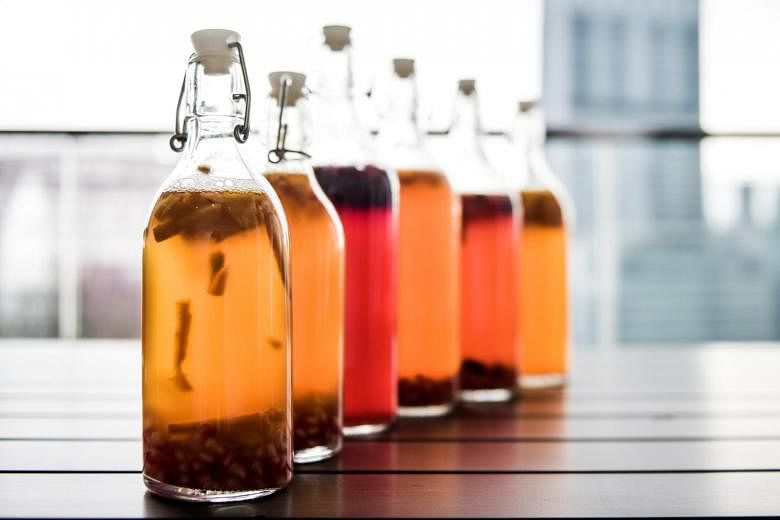COPENHAGEN (BLOOMBERG) - With fermented foods reaching near-cult status for the health-obsessed, consumers have started hunting for the perfect bacteria.
As a result, brand awareness - and the marketing that comes with it - has now made its way into the world of food cultures, according to chief executive of Denmark's Chr. Hansen Mauricio Graber, the world's biggest maker of probiotic cultures used in foods such as cheese.
"Strains matter," he said in an interview.
One of the behavioural side effects of the pandemic - and the lockdowns it spawned - appears to be a sudden spike in demand for fermented health products like kombucha and kimchi.
Branding bacteria is becoming a thing, especially in Asia where food companies have built consumer confidence in the immune- and digestive-health benefits of added live cultures.
Bacteria makers are taking a page out of Intel book to try to solve the branding problem. The company, which makes semiconductors that go into the guts of laptops, eventually slapped the now famous "Intel inside" sticker on the PCs to gain recognition.
Chr. Hansen's LGG brand of Lactobacillus rhamnosus now appears on products like Babybel probiotic cheese snacks. Logos have yet to make their way onto packaging in Europe, Graber said.
"Consumers may seek natural, healthy products once Covid-19 is under control, potentially boosting Chr. Hansen's ability to expand organic revenue at double the industry rate. Its technology allows for the abolition of antibiotics and chemicals in the food chain, adding probiotic cultures to support labels' health claims," said Bloomberg Intelligence analyst Duncan Fox.
"You see it a lot in the supplement space, and sometimes what you see there you end up seeing to some degree in the mainstream food and beverage area," said Albert McQuaid, chief technology officer at ingredients maker Kerry Group, whose GanedenBC30 brand has also made it onto food and drinks containers.
"People want to really trust the credibility of the ingredients and that requires the ingredient having real presence."
Covid-19 is spurring two diverse trends in 2021, according to an industry report by Kerry.
While people are hankering after comfort food like apple pie and mac and cheese, there's also a craving for more exotic flavors and cuisines given physical travel is off the agenda, Kerry said.
But there's also a major shift toward healthy foods, it added, helping reinvigorate the probiotics industry, which itself has had its ups and downs. Almost a decade ago, the European Union banned the use of "probiotics" and any related health benefits on food labels, rejecting a flood of applications.
In recent months, cracks have started to appear in the EU's ruling, with Spain among member states loosening the rules to allow the probiotics label to reappear as a food ingredient.
"Europe got a little wary of some of the science as companies were putting stuff on willy-nilly back in the late 1990s, early 2000s, with no scientific backing; Danone got hit hard on this one," Mr Fox said.
"Yet Chr. Hansen has the data that can prove stuff, and the pandemic may just enlighten people to how a good diet is helpful."
Mr Graber said Europe is far behind other regions when it comes to bacteria brand recognition.

